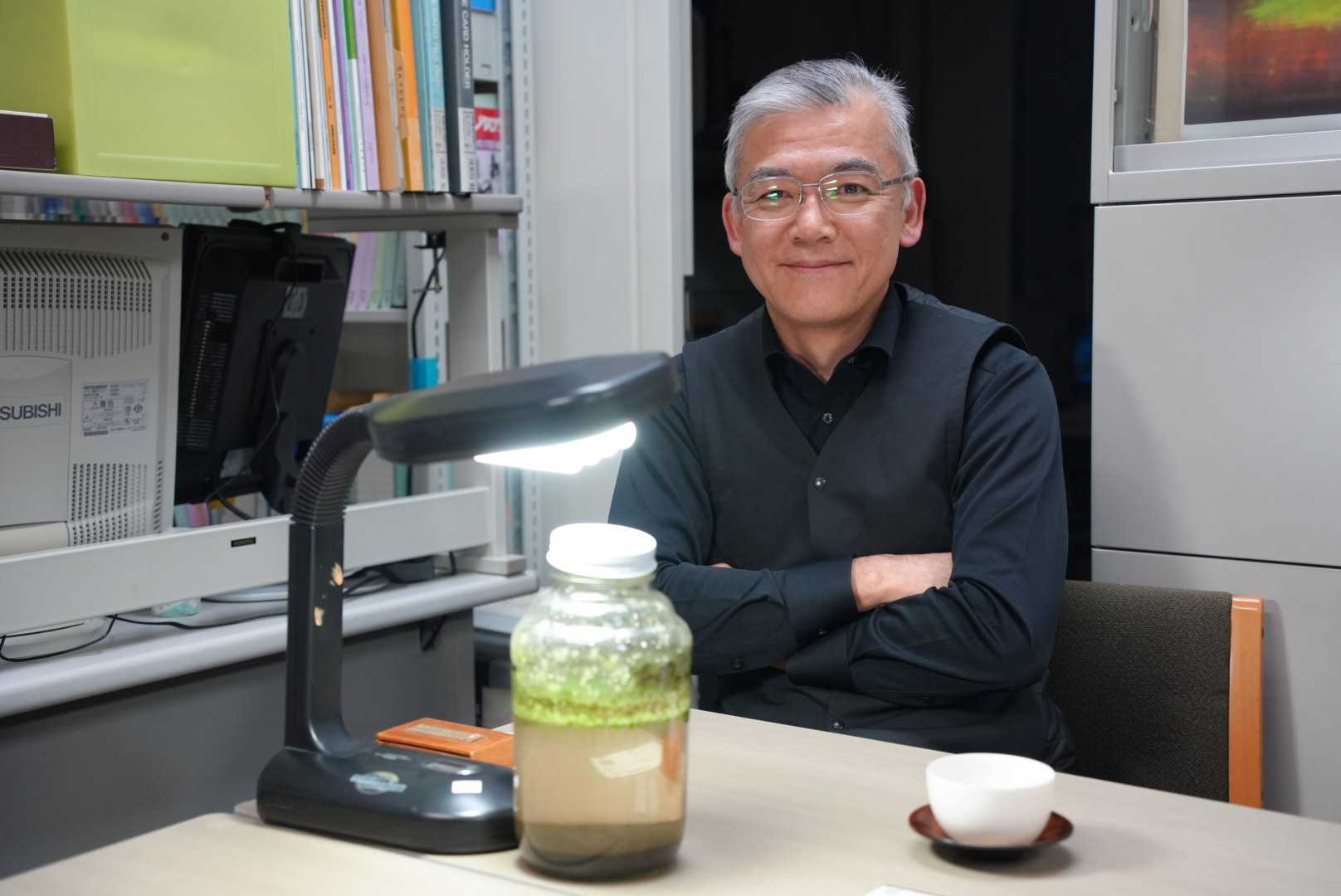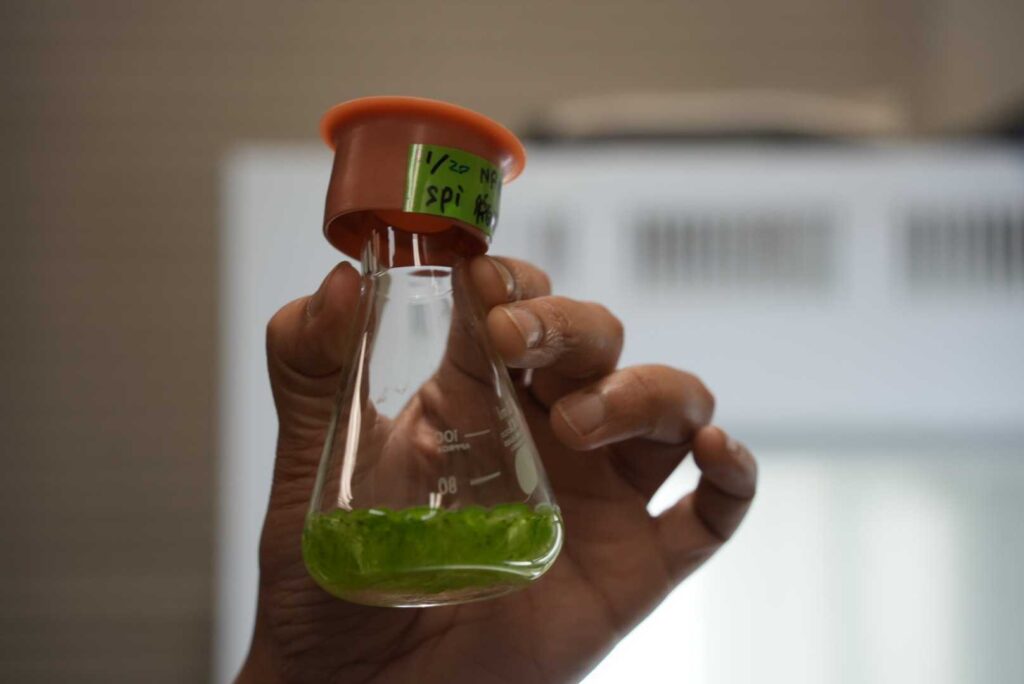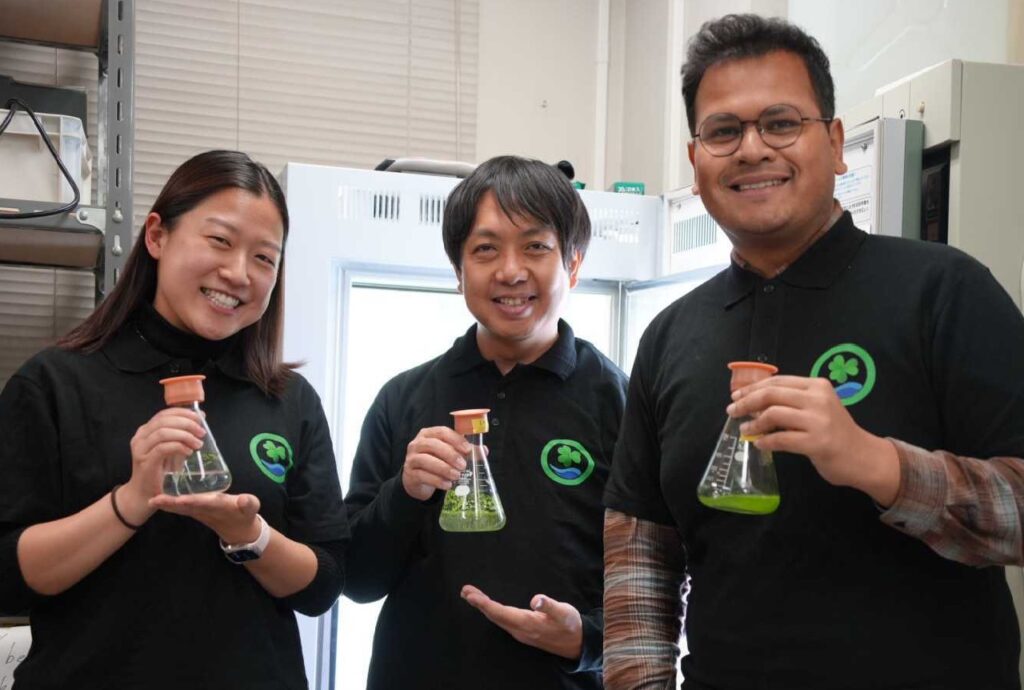
Visit to Dr. Morikawa Masaaki’s lab at Hokkaido University
Dr. Suzuki's visit to Professor Morikawa's laboratory at Hokkaido University, focusing on the potential of Wolffia as a food resource and discussions around the industrialization potential of Lemnoideae. During the discussion, the participants exchanged views on the current status and future prospects of these aquatic plants in the field of sustainable food resources.
Wolffia as a Promising Food Resource
Wolffia, belonging to the duckweed family (Lemnaceae), has been recognized as one of the world's most nutritious leafy protein sources. It is also acclaimed as the fastest-growing plant and a highly sustainable food source. Duckweeds, including Wolffia, are known for their rapid proliferation and high yield per harvested area, surpassing major crops like soybean, rice, and corn in protein production. This feature positions them as a potential solution to farmland shortages for food or animal feed production.
Importantly, Wolffia species have been consumed as protein sources in Asia, and their acceptance as food resources is growing. They are rich in essential amino acids, vitamins, and have a balanced ratio of omega-3 to omega-6 fatty acids, making them suitable for both human and animal nutrition. However, it is critical to note that some duckweed species, high in oxalic acid, could pose health risks such as kidney stones.
Lemnoideae: Genetic Advancements and Industrialization Potential
The subfamily Lemnoideae is notable for its chloroplast genomes that provide valuable information for evolutionary and population genetic studies. The high-throughput DNA sequencing of these genomes indicates a greater genomic dynamics, which is crucial for understanding their adaptation and growth. These genetic insights lay the foundation for potential genome editing applications, paving the way for industrial exploitation.

Discussion with Floatmeal Co., Ltd. and Lab Visit
In the latter part of Dr. Suzuki's visit, discussions with the Floatmeal Co., Ltd. has distinguished itself as the first company in Japan to successfully commercialize and mass-produce Wolffia. This company has taken significant strides in harnessing the potential of what is known as the world's most nutritious leafy protein source, the fastest-growing plant, and a highly sustainable food source. Under the scientific guidance of Professor Morikawa, Floatmeal Co., Ltd. is actively addressing global challenges such as food security and climate change, leveraging Wolffia's exceptional nutritional profile and rapid growth characteristics. The company's pioneering efforts in Japan mark a significant milestone in sustainable food production and consumption.

Conclusion
The visit by Dr. Suzuki to Professor Morikawa's laboratory and subsequent discussions with industry experts underscore the significant potential of Wolffia and other duckweed species as sustainable, high-yield food sources. The genetic studies of Lemnoideae and the efforts of companies like Parabel and Floatmeal highlight the growing interest and practical steps being taken towards commercializing these plants for human and animal nutrition. As the world seeks sustainable and efficient food sources, duckweeds, especially Wolffia, emerge as promising candidates, aligning with both environmental and nutritional goals.
